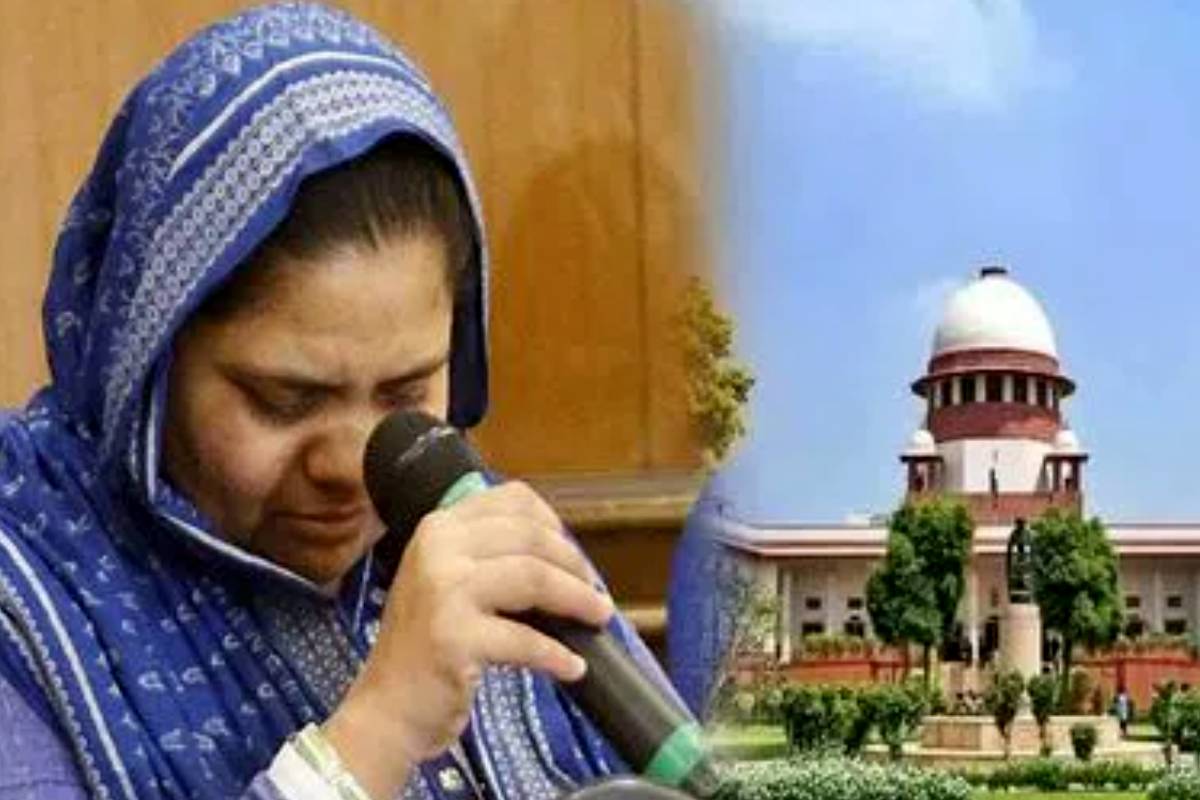NEW DELHI: The Supreme Court of India has revoked the early release of 11 men convicted of raping Bilkis Bano and murdering her family during the 2002 Gujarat riots. The court’s ruling dictates that the convicts must return to jail and surrender within two weeks.
The Gujarat government’s authority to release the men in 2022 was sharply criticised by the Supreme Court, prompting waves of condemnation from civil society, activists, and opposition politicians.
The Supreme Court declared the exemption order as lacking competence, admonishing the Gujarat government for its decision without proper application of mind. The court emphasised that criminals can only be released by the state where they were tried, which in this case is Maharashtra. It described the state of Gujarat’s exercise of power as an “usurpation of power and abuse of power.”
Addressing concerns about the convicts’ right to personal liberty, the court held that allowing them to remain out of prison would validate “invalid orders,” asserting that the rule of law must be preserved irrespective of the consequences.The court also scrutinised its own judgment from May 2022, stating that the convicts obtained the release order “through fraudulent means.” The judges highlighted that the Gujarat government should have sought a review of the 2022 order. The convicts were released based on a 1992 remission policy, later superseded by a 2014 law prohibiting the release of convicts in capital offense cases.
The release of the convicts had sparked controversy as they were welcomed with garlands and sweets, sharing the stage with BJP representatives. The Supreme Court’s decision comes after an 11-day hearing of petitions challenging the release, including one by Bilkis Bano herself.
Petitioners against the release included political figures like Trinamool Congress’ Mahua Moitra, CPM Politburo member Subhashini Ali, journalist Revati Laul, and former vice-chancellor Roop Rekha Verma. The court had raised tough questions about the Gujarat government’s decision during the hearing.
Bilkis Bano, who was gang-raped during the 2002 Gujarat riots at the age of 21 and five months pregnant, has fought tirelessly for justice. The court directed the convicts to surrender to authorities within two weeks and mandated that they approach the Maharashtra government for any future remission requests.In response to the verdict, Congress MP Pramod Tiwari described it as a “tight slap on the face of the BJP government in Gujarat.” The Supreme Court’s decision underscores the imperative of upholding the rule of law, regardless of the political or communal context. Congress leader Pawan khera also condemned BJP’s ‘callous disregard for women’, stating, “This is a slap on the face of those who helped in the illegal release of these criminals and who bulldozed justice and garlanded the convicts and fed them sweets.”










